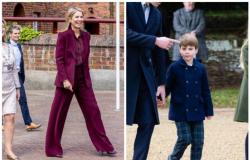“I’m going to ask you all the things I wanted to ask my mother.” This is how documentary maker and producer Pieter van Huystee begins his film When I close my eyes: living with the Japanese camps, in which he interviews fourteen women. One of the women is his sister, the other thirteen were held in a Japanese women’s camp in Indonesia during the Second World War. Just like Van Huystee’s mother and grandmother.
They never actually talked about it at home. The time in Tjideng camp in West Java was simply not a topic of conversation. And now that his mother has died, Van Huystee can no longer talk to her about it. Did she not want to talk about it, did it not happen, should her children have asked further questions?
About the author
Pauline Kleijer prescribes de Volkskrant about film.
If the director failed to please his mother, he puts it right with his new film — in thirteen copies. The women he interviews, many of whom are over 90, can tell their stories in detail. They were in different camps. They were still very young, they mostly kept silent about their experiences, but the memories never disappeared.
No film footage
There are few photos and virtually no film footage of the women’s camps — an important reason why hardly any documentaries have been made about them. However, hundreds of drawings have been preserved, in black and white and color, made on wrapping paper, in notebooks, on drawing sheets or cardboard. Van Huystee supplements that image with hand-painted animations by Hanneke van der Linden. The old drawings are especially impressive: they are often of high quality and provide a detailed picture of camp life. There is a suitable illustration for every testimony.
The stories about the camps have not been told often: after the war there was little attention for them. For that reason alone, it is a good thing that Van Huystee made his documentary before a generation of camp victims has disappeared. The living conditions of the Japanese internment camps in Indonesia are known to have been horrific. Between 1942 and 1945, tens of thousands of women and children died in the women’s camps from malnutrition, exhaustion and disease.
Taking the boys away
The women out When I close my eyes talking calmly and collectedly about the lack of food, the fear that reigned in the infirmary, the deep bowing before the sadistic camp guards. They sometimes had to stand in the sun for hours, or stay out all night in the rain. But the worst thing she experienced, says Femke de Kat, was having the boys taken away — in Tjideng camp, boys aged 10, 11, 12 were separated from their mothers at one point.
“I remember it very well,” says De Kat. ‘There were those boys standing in a line in front of the gate, with a bag and a plate and a cup, the only thing they were allowed to take with them. Their mothers could only shout to them: it won’t be long, we’ll see you again soon! But that wasn’t the case. No one knew where they were going.”
The memory still affects her, even though The Cat herself was not one of the mothers. That is indicative of the way the women view the camp past. They had it tough, but there was always someone who had it worse. “We were all pathetic,” says Joty ter Kulve-van Os. ‘But there were also people who were even more pathetic. That may be difficult to understand. If you’ve been in a camp for a few years, you can understand that.’
Until it doesn’t work anymore
Putting things into perspective, pushing them aside, they are tools to stay upright and to pick up life again. “You become apathetic, numb,” says one of the women. Until that is no longer possible: the most moving story comes from Nora Valk-Sutorius, who lost her mother as a child in the Ambawara camp and had no brothers or sisters. “Then I thought I was all alone in the world.”
In this way, Van Huystee comes closer to the family past little by little. As an interviewer, he remains out of the picture, but his sister does appear in front of the camera to talk about their mother. When I close my eyes is a sensitive and valuable tribute to her and all her fellow sufferers, whether they spoke or remained silent.
When I close my eyes: living with the Japanese camps
Documentary
★★★★☆
Directed by Pieter van Huystee.
95 min., in 20 rooms.
Movies that Matter
The documentary When I close my eyes is part of the program of Movies that Matter, the annual film festival in The Hague that revolves around human rights, social commitment and activism. Movies that Matter will take place until Saturday March 30. The program includes many documentaries, such as about the war in Ukraine (Searching for Nika), the tense situation in Taiwan (Invisible Nation) or growing up with absent parents (Sons without fathers). Fiction films can also be seen. The closing film is Crossing by Levan Akin.
Tags: moving documentary close eyes women stories Japanese camps
-




